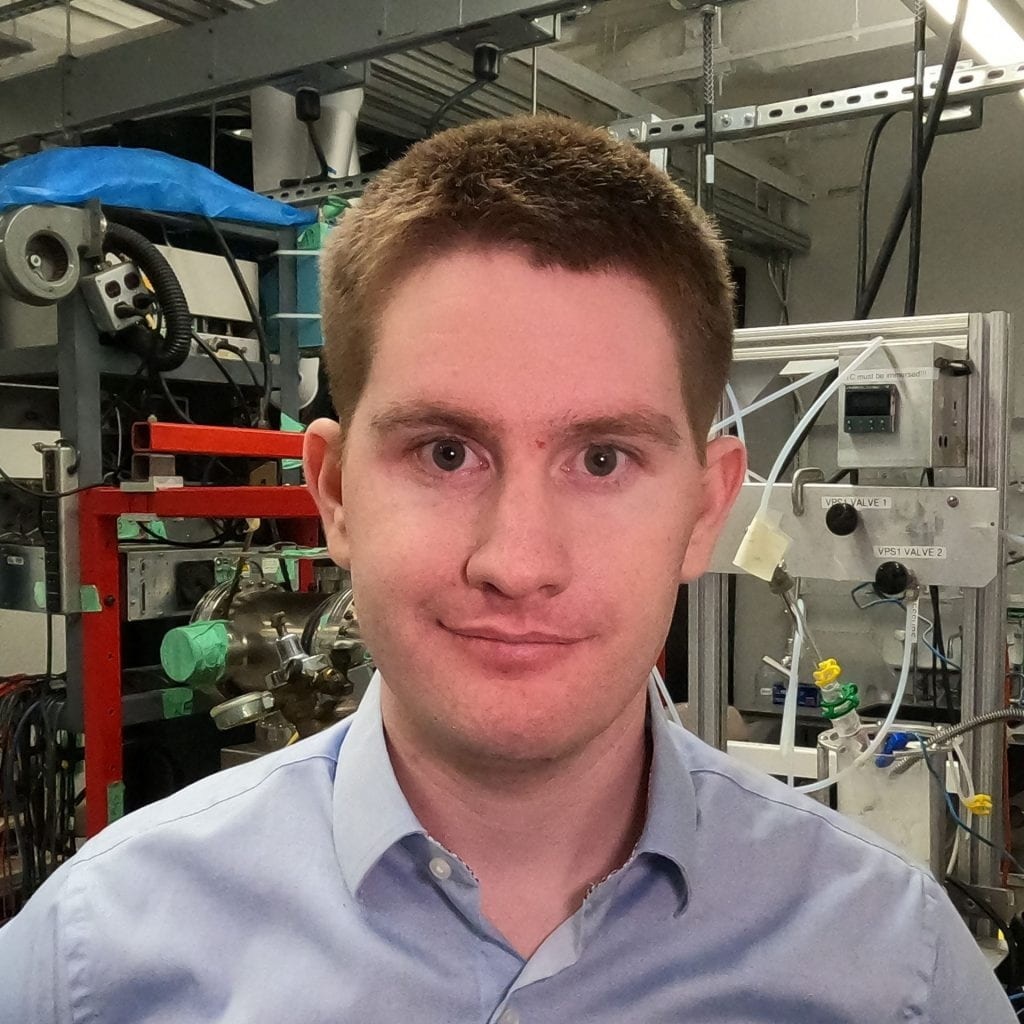Kevin McKenzie, Graduate Student, Wagner Lab, GW Department of Chemistry
Batteries, Carbons, and Graphite: Enabling A Green Future
The Department of Chemistry Presents: Kevin McKenzie, Graduate Student, Wagner Lab, GW Department of Chemistry
Climate change affects the health and safety of global society. Although the solutions are complex, sustainable transportation is one critical step toward reducing fossil fuel combustion emissions. This sector alone accounts for 28% of all US CO2 emissions (2021; EPA). One possible solution, the adoption of electric vehicles (EVs), is reliant upon lithium-ion batteries (LIB). However, these batteries are expensive, totaling ~1/3 the cost of EV’s.
A large proportion of the cost of LIB’s is that of the anode active material, graphite. Each EV battery pack contains 70 – 90 kg of high-grade graphite. LIB grade graphite is currently produced either by highly polluting and wasteful mining or energy intensive and emissive fossil fuel derived synthesis. The drive to electrify transportation is predicted to require an increase in graphite production by 500% by 2050, greatly exacerbating these environmental impacts and calling into question whether the supply chain can meet these needs.
In an effort to meet the expected demand for LIB grade graphite in an affordable and environmentally beneficial way, we have developed a novel carbon negative method of converting biochar or lignite to graphite. Biochar is the waste product of biomass pyrolysis; its valorization could greatly improve the economic position of biofuel production. However, utilizing coal instead of biomass has a number of important advantages including low cost, an established supply chain with minimal raw material transport, valuable chemical and metal by-products, including rare earth elements, and of course, the preservation of forests or other biomass feedstocks.
Our current work is focused on improvement of the quality of graphite made from coal and adapting the method from batch to continuous production. We have designed and constructed two systems as proofs of concept systems for mass production of graphite from biomass materials. We will present our work with the synthesis of graphite, focusing on coal-based feedstocks and the optimization of our process. In addition, our investigation of the mechanism of graphite synthesis and subsequent development of a method to produce nanotubes using a variety of feedstocks will be presented.
BIO
Kevin is a Ph.D. candidate in The George Washington University Department of Chemistry in Dr. Michael Wagner’s research group. He received his Bachelor of Science in Chemistry from The George Washington University in 2016 and joined the Wagner Research Group as a graduate student. Kevin’s research is focused on developing methods of economically transforming biochar to useful value-added materials to economically enable pyrolysis bio-oil production. In general, the carbonaceous materials produced have been tailored for application in lithium-ion batteries. It is hoped that the methods and materials developed can contribute to a sustainable green future. Kevin has been a co-inventor of two patented technologies, and the co-author of three peer reviewed publications, with three more in preparation.

